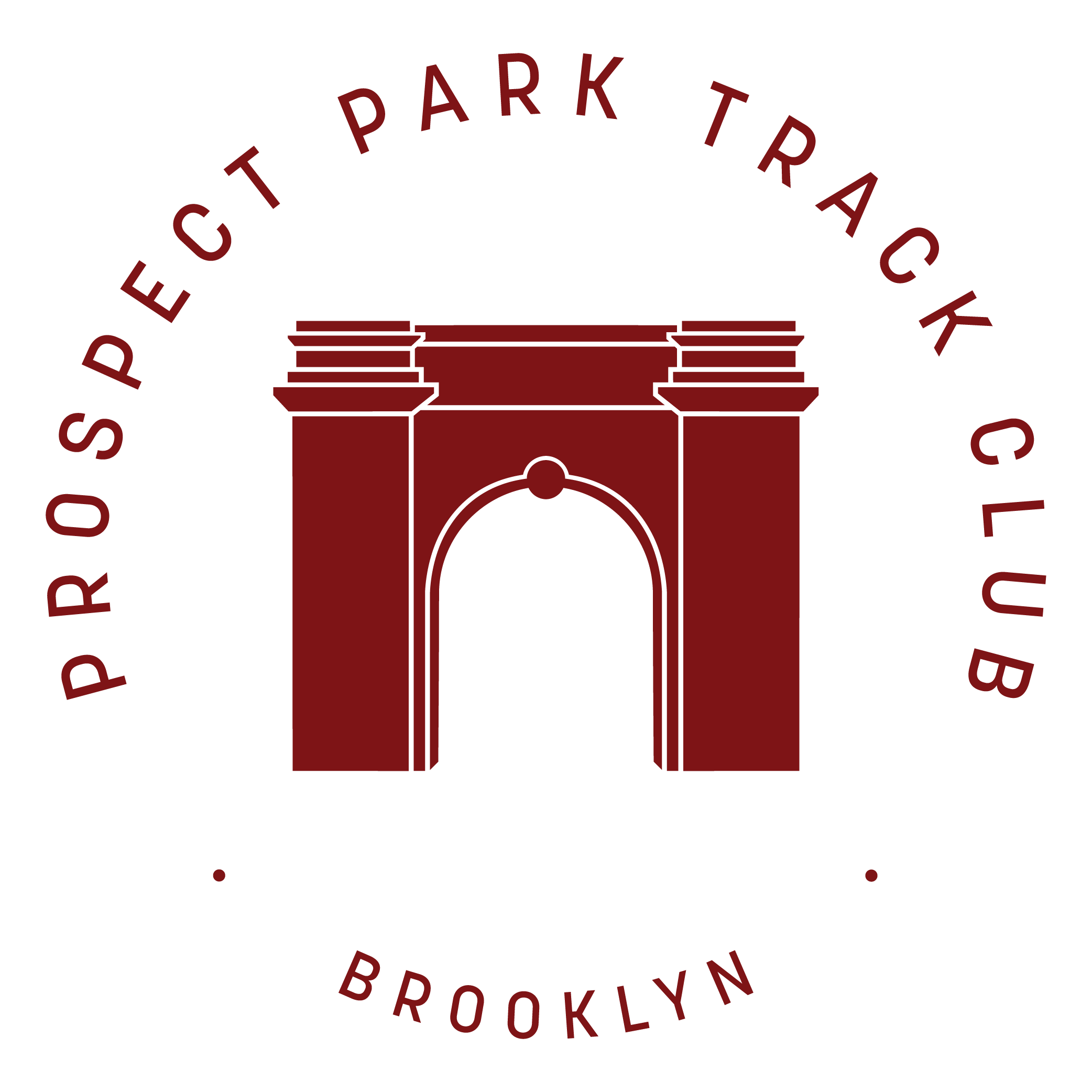Running Through Herstory
Claire Jardin and I “running” the world, fall 2019. Photo Credit: Marek Stephniowski
By Rachael DePalma
I've never questioned that women run the world. I come from a long line of strong and stubborn matriarchs: The men in their lives were well aware that their wives, mothers, and sisters ran the show. I was fortunate enough to be complimented for my intelligence and strength just as much as (if not more than) my looks. I had a sweatshirt in elementary school that said “Girls Rule” (in blue glitter!) and happily wore it. That piece of clothing was a symbol of all the things that I knew were awesome about being a girl, even though I was a self-proclaimed “tomboy” (I wanted to change the name to tomgirl, because I was still, you know, a girl).
I’ve always taken pride in my femininity, but there times when I am frustrated by its perceived limitations. Women are seen as weaker. Legitimately, we often don't feel safe running alone at night for fear of assault. Statistically, we have to work harder in their careers for promotions, yet still don't receive pay equal to men. Still, I have so many more liberties than those before me.
The last hundred years have seen fierce – albeit slow – changes for American women since we garnered the right to vote in August 1920. Suffragists waged a long battle so women could take part in this basic, yet powerful, civic duty. Since then, feminists have been and are continuing to push for women to be treated as equal to men in all spheres of life, including running.
In the late 1960s, women were challenging the status quo of our sport, particularly in the Boston Marathon. Roberta “Bobbi” Gibb hid in a bush near Boston’s starting line in 1966 and ran an astonishing 3:21, challenging the idea that women could not run the distance because they weren’t considered strong enough to do so. In 1967, Kathrine Switzer applied for the Boston Marathon using her initials and earned a spot in the race. Although there were attempts made to stop her, she completed the race in 4:20. These two women exemplified the power and strength that females possess, before it became socially acceptable to do so.
That all changed in 1972, a year that marked several huge strides for women in sports: The establishment of Title IX required schools and other federally funded institutions to provide equal opportunities to both girls and boys in sports. It was also the year when women were accepted into the Boston Marathon for the first time, as well as the first women’s open road race, the Women’s Mini-Marathon, here in NYC. In 1973, the first all-women’s marathon took place in West Germany.
Cue the cowbells and confetti (and heck, throw in a parade while you’re at it): During this explosion of progress in running, our very own Prospect Park Track Club was born in 1970!
Claire Dougherty, the first PPTC female member, running to represent PPTC today. Photo Credit: Claire Dougherty
A few years later, Claire Dougherty made history as she became the club’s first female member. Since Claire’s high school only offered basketball and swimming, she reportedly started running in college to keep her weight down, and joined PPTC where her twin brother was already a member. Claire considered PPTC “a group of ‘old’ men”: She was 21 at the time! Other notable PPTC women who joined in the early years: Regina Cahill, who later became president; Flavia Marin, from Trinidad, Vicky (who Cahill describes as a super ‘punk’ emergency room nurse from New Zealand), and Diane Johnson, a teacher.
Claire ran her first NYC Marathon in 1978, where less than 9% of the finishers were female. To put that into perspective: Over 42% of the finishers of the 2019 NYC Marathon were women. Progress is being made, folks!
Both Claire and Regina Cahill are still active club members today. Among other races, Regina has been dedicated to competing in the 1500m race in the series of Colgate Women’s Games each winter. When Claire races, she is grateful for finishing and appreciates that runners are supported regardless of their finish time. She also cherishes the friends that she has made through running.
These women paved the road all of us are running on today: PPTC is now made up of hundreds of women who are leading the club through social events, directing & planning races, supporting groups like Back on My Feet, Run4Fun, and Every Woman Counts raising awareness of maternal health, homelessness, and mental health. These women are also crushing ultras, as well as breaking records at every distance effortlessly.
The trio of Jana, Joelle and Mary after a race. Photo Credit: Larry Sillen
2019 was a banner year for PPTC’s female marathoners: Mary Johnston, Jana Trenk, and Joelle Reeves all broke the club’s marathon record for women with each of their performances, smashing through the three-hour wall with finish times of 2:58:11, 2:55:18, and 2:55:08 respectively. For these achievements, they earned PPTC’s Most Inspirational award at Awards Night.
Their encouragement for each other and collective joy at their accomplishments left an indelible impression on me, and undoubtedly many others.
PPTC’s women have ignited a drive in me to keep running and striving for more in the sport as well as in my life, despite its many obstacles. They empower me to move forward, and have helped me stay engaged and motivated to run post-college. In the words of Claire Dougherty: “The best advice I can give is to not give up. Injuries will get better. Try to keep it up for as long as you can because it is great for your body and your mind.”
Ladies, it is time to take ownership: We run the world, and we’re never going to stop!
Edited by Donna Newton and Alison Kotch
Produced by Alison Kotch



